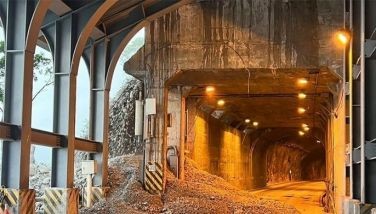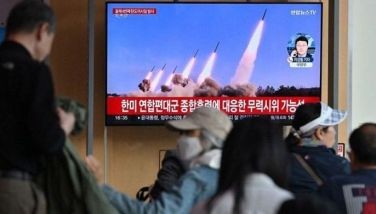Solar, wind power draw Obama support at Vegas energy summit
LAS VEGAS - President Barack Obama brought presidential star power to tout the benefits of solar electricity in Western states during an annual green power conference Monday in Las Vegas hosted by US Sen. Harry Reid.
The president used a keynote speech to the eighth National Clean Energy Summit at the Mandalay Bay resort to endorse continuing development of wind and solar energy. Obama called for overcoming resistance from "some fossil fuel interests who want to protect the oil-dominated status quo."
The US uses 20 times as much solar today as when he became president in 2008, Obama said, while industrial and home solar installation has become less costly and more common.
"Every minute, another home or business in America goes solar," Obama said.
He urged the audience of more than 700 people to resist what he called massive lobbying interests pushing to roll back renewable-energy standards or prevent clean energy businesses from succeeding.
"We've got to be able to politely but firmly say, 'Sorry, but we're moving forward,' " the president said, drawing applause when he said the issue should not be a Republican-versus-Democrat debate.
Obama headlined an event that Reid has nurtured as Democratic leader of the Senate to seek support for new executive actions and other efforts aimed at making it easier for homeowners and businesses to invest in green energy improvements.
The debate about costs — to consumers installing home rooftop solar panels and to utilities that control the electric grid in sunny states like Nevada, Arizona, California, New Mexico and Utah — provided a point-counterpoint discussion between Charles Cicchetti of the Pacific Economics Group, speaking for consumers, and Lisa Wood of the Edison Foundation, representing utilities.
"It's a misconception that rooftop solar users don't need the grid," Wood said. She called it only fair that customers continue to pay to maintain the transmission system from which they draw electricity during peak-use times and at night.
The misconception, Cicchetti said, is that consumers are required to buy power from the utilities. The bigger danger to the companies, he said, would be for rooftop solar users to become so alienated that they find ways to store electricity collected during the day and withdraw from the grid altogether.
The question hits home in Nevada, where the dominant utility, publicly traded NV Energy, hit a preset statewide cap last week of 235 megawatts on the amount of rooftop solar power it will buy back from customers.
The utility will still accept applications for rooftop solar projects, company spokeswoman Jennifer Schuricht said. But it obtained the cap at the Legislature last spring to give state utility regulators time to revise net-metering rules to eliminate what NV Energy calls cost-shifting from customers with solar to other customers.
Similar fights have taken place in Arizona and New Mexico. Utilities are working to impose higher fees and roll back incentives set up to help the solar industry get established. They argue the cost of transitioning to solar has declined, and it's time for solar customers to pay their share of fixed costs associated with maintaining the electrical grid.
Regulators rejected a bid by New Mexico's largest electric provider, Public Service Co. of New Mexico, to charge solar customers new fees, stop paying renewable energy credits, and eliminate a practice that lets solar customers get credited at retail rates for every kilowatt hour of solar electricity they sell back to the grid. The utility is expected to resubmit its rate request.
Arizona Public Service, the largest utility in that state, has been pushing state regulators to allow a monthly charge for solar, while the second largest, the non-regulated publicly owned Salt River Project, instituted charges on its own.
The solar industry is fighting the fees, saying the utilities are just trying to maintain their monopoly positions and profit margins. They complain utility policies threaten to kill their fledgling industry.
Obama drew applause when he called for leaving those he called "naysayers" behind.
"We have engaged in this debate many times before," he said, "... the debate is between those who say, 'No we can't,' and those who say, 'Yes we can.'
"We refuse to surrender the hope of a clean-energy future to those who fear it and fight it."
Reid, who has made clean and green energy one of his touchstone issues, noted in opening remarks that the key challenge today is "properly valuing rooftop solar, properly valuing energy efficiency and properly valuing other distributed sources of clean energy."
One leader of a utility company said she welcomed the trend.
Almost one-third of the energy used by California utility giant Pacific Gas & Electric comes from what company President Geisha Williams called a renewable portfolio standard.
PG&E serves an area with about 16 million people in northern and central California, and Williams said it now has about 175,000 customers with home solar generation.
Williams said her company gets as many as 5,000 applications per month for rooftop solar, and it has streamlined approvals so they usually take about five days.
- Latest
- Trending






























